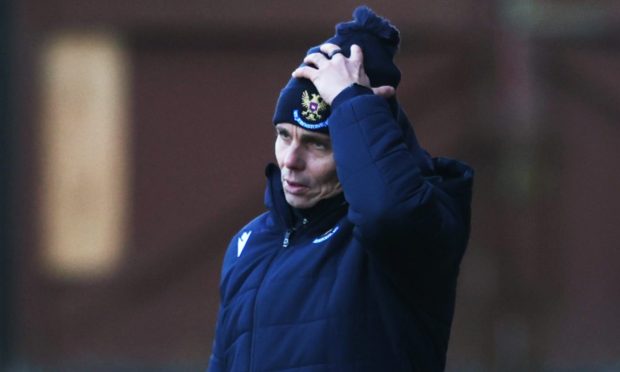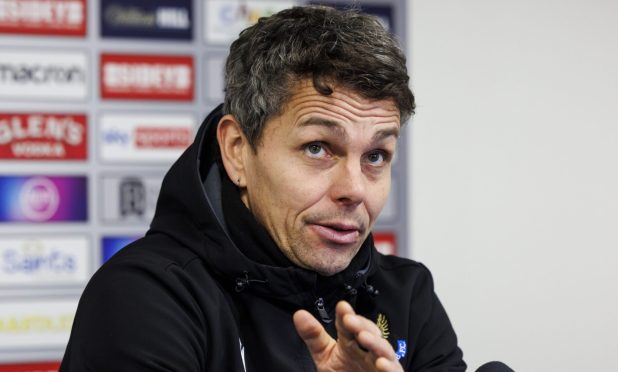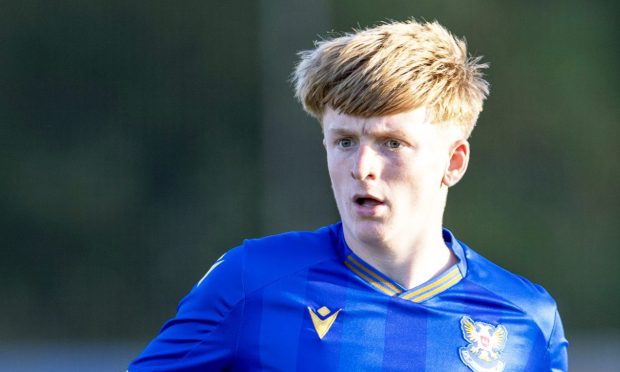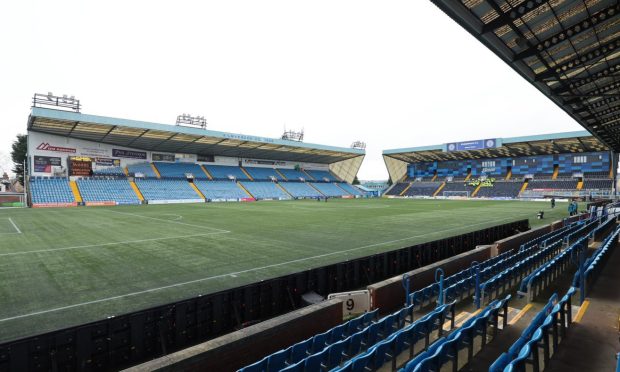With Craig Gordon excelling as Scotland’s goalkeeper during the World Cup qualifying campaign, there is no debate about who should be the number one in Steve Clarke’s side.
But Gordon – and David Marshall for that matter – are far nearer the end of their careers than the beginning.
The spotlight will soon shine brighter on the next generation.
St Johnstone’s Zander Clark and Motherwell’s Liam Kelly certainly fall into the category of potential future goalies for the national team.
Both have been selected for (and then left out of) Scotland squads over the last few months, with Kelly included in the pool for this month’s friendlies and Clark omitted.
Ahead of the game between their club sides this weekend, Courier Sport looks at the Opta statistics of their domestic performances to see if they back-up or contradict Clarke’s latest decision.
Goals conceded – Kelly 44, Clark 25
This category isn’t necessarily the most reliable barometer given there is a lot more to a team conceding goals than the individual form of the goalkeeper.
But Clark does emerge very well out of it nonetheless.
He has played five fewer Premiership games and nearly 500 fewer minutes but has still managed to let nearly half the number of goals into his net compared to Kelly.
Unbelievable 👏🧤
Watch Liam Kelly's astounding triple save to deny Aberdeen at Pittodrie ⤵️ pic.twitter.com/VqMUVtbzOG
— BBC Sport Scotland (@BBCSportScot) November 7, 2021
Save percentage – Kelly 70.7%, Clark 75.3%
In arguably the most important performance-assessing statistic in goalkeeping, Clark has a significant lead over his younger opposite number.
Kelly has made 30 more saves (106 to 76) but that equates to a near 5% advantage for the Saints man.
Both have numbers to be proud of but Clark has been the stronger pound for pound performer in 2021/22.
Save percentage inside the box – Kelly 63.7%, Clark 69%.
Again this is a significant compare and contrast.
The gap between the two grows when you look at shots saved inside the 18-yard box, where life gets more difficult for a keeper.
It is now over 5%, which would point to better agility and reaction speed from Clark.
Zander Clark v Dundee United pic.twitter.com/n6e0IrsXCB
— St. Johnstone FC News ★★ (@sjfcnews) October 31, 2021
Penalties saved – Kelly 1, Clark 0
Ironically, given the fact that Clark was a spot-kick hero for Saints in last season’s Betfred Cup semi-final, the Scottish Cup last-16 and the Scottish Cup quarter-final, he comes out worse in this category in the current league campaign.
HIGHLIGHTS | Dundee 0 – 1 @StJohnstone #ScottishCup pic.twitter.com/aUAyW7Ffy4
— Scottish Cup (@ScottishCup) April 4, 2021
He has faced four and been beaten on every occasion.
Kelly, meanwhile, has kept out one of the six Motherwell have conceded.
Passing accuracy – Kelly 39.4%, Clark 39.7%
There clearly isn’t much between the pair in a part of the game that is becoming ever more important for goalies.
It’s probably the area where there is the most room for improvement as well.
Those numbers might be good in Scottish Premiership terms but if you look at the very best in the English Premier League, there is a huge gap.
Neither play as a ‘sweeper keeper’, which is the norm at the top clubs, and the necessity and/or instruction to ‘go long’ is far greater for Kelly and Clark in St Johnstone and Motherwell teams than it would be for Alisson and Ederson at Anfield and the Etihad.
As an illustration of the elite end of goalkeeping, though, the two Brazilians can hit an 80-plus percentage over a sustained period of football.
Verdict
Statistics can be misleading but there’s a strong argument that, of all the positions on the pitch, goalkeeper is the one where they are most relevant.
The Opta-based conclusion for the Clark v Kelly head-to-head is that the Perth man is having the better season.
Saints fans need no convincing that their keeper is next best in Scotland after Gordon and Saturday will provide another opportunity for Clark to prove it.










